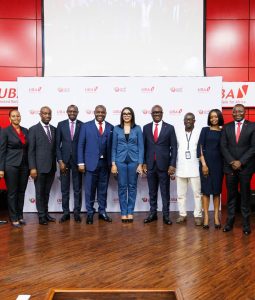
Nigerians still remain the ultimate burden bearers of the government’s failure to take effective preliminary, decisive and demonstrable actions towards addressing oil and gas sector challenges”, Civil Society Legislative Advocacy Center CISLAC, said.
Responding on Tuesday to the news of new increase in the pump price of the premium motor spirit, petrol, said,
“Citizens have been taken for a joy ride and lied to at every step of the way by various beneficiaries and stakeholders in the value chain.
“On 1st June 2023, the Group Chief Executive Officer, Nigerian National Petroleum Company Limited, Mele Kyari, in response to the rising prices of PMS, alleged that competition among major players in the oil sector would force down the price of petrol as against the upward trends that have caused panic in the country”, said Executive Director,
CISLAC, Auwal Ibrahim Musa (Rafsanjani). He spoke further, “Similarly, in trying to allay fears of citizens, the Independent Petroleum Marketers Association of Nigeria (IPMAN) on the 1st of July 2023, denied the alleged plan by the association to increase the pump price of Premium Motor Spirit (PMS), also known as petrol, to N700 per litre nationwide .
“The recent increase in petrol prices has been attributed to an increase in crude oil prices in the international market, with Brent crude benchmark price surpassing $80 per barrel; as well as the increase in the Dollar to Naira exchange.
“Why are there no corresponding adjustments in prices when these factors go in the opposite direction? “So far, out of over 56 companies that applied for import licences to bring in petrol, only 10 made commitment to import, and only 3 have imported petrol into the country. What are the underlying drivers of this low investor response, that should drive competition and force down the price of petrol?
“In January this year, daily petrol consumption was 62 million litres; February, 62 million litres; March, 71.4 million litres; April, 67.7 million litres; May 66.6 million litre; June, 49. 5 million litre; and now 46.3 million litres, a 35% reduction. “While this suggests reduced demand, it does not suggest a reduced dependence on it. Less people can afford petrol to meet their transportation, home-powering and other needs, and Small and Medium-sized Enterprises (SMEs) are facing difficulties in accessing affordable power.
“This has huge implications for businesses which rely on refined crude products like diesel and petrol, respectively. Petrol and Diesel prices negatively and significantly affect manufacturing output in Nigeria.
“There are at least, 39.6 million micro, small and medium enterprises (MSMEs) operated in Nigeria as of December 2020, accounting for 96.7 percent of businesses, 87.9 percent of employment, and 49.7 percent of national GDP. Totaling about 17.4 million enterprises, they account for about 50% of industrial jobs and nearly 90% of activities in the manufacturing sector, in terms of number of enterprises.
“The trade deficit of $20 million recorded in November 2022 from the low crude oil export receipts signalled the urgency to jettison petrol subsidy, develop local production capacity and end fuel import dependency for a favourable balance of trade.
“While it is true that no nation has control over the price of crude oil, several measures can be put in place to mitigate the effect of oil price volatility on the country’s domestic economic productivity.
“The current underutilization of Nigeria’s refineries impedes the country’s ability to meet local demand and its economic potential. Nigerians are yet to receive firm commitments, actions and timelines on the delivery of our four moribund refineries to optimal operations. “Furthermore, the private and modular refineries have a refining capacity that will strengthen Nigeria’s refining sector, eradicate dependency on imported oil products and lead to improved crude export earnings.
“A major effect of the subsidy removal is its knock-on effect on prices of goods and services. Increased transportation costs due to the high fuel prices, directly impact agricultural production and have implications for food security.
“The government must show real concern and take urgent actions to cushion the effect of its decision which is perpetuating poverty and inequality.
“This is widening the country’s already-existing income inequality with low-income citizens and vulnerable segments of society facing greater financial strain to meet their basic food needs.
“The government is clearly insensitive to the plight of the growing number of Nigerians slipping into poverty daily as a result of its harsh policy directions.
“It has so far demonstrated a lack of interest in people-centred programs that could help reduce poverty, economic inequality and economic suffering.
“At the same time this government is inconsistent in the application of its “austerity measures” as it is pursuing outrageous, unsustainable, unjustifiable and reckless spendings at the expense of the welfare of its citizenry.
“Nigerians do not know the economic blueprint of this government and this is the repercussion of the absence of political accountability under President Bola Tinubu right from his campaigns when he refused to participate in the political debates to enable the citizens to track his commitments towards socioeconomic and political reforms that can reduce corruption, poverty, unemployment and improved well-being of Nigerians.
“The government should not take for granted, the patience of poor Nigerians who reluctantly bear the dire consequences of the over 300% fuel price increase due to the subsidy removal, as part of the sacrifice awaiting when government would have settled to come up with ameliorative measures for the citizens.
“We must build a democracy centered on public trust and accountability. “Unfortunately, we have a history, practice and tradition that has encouraged the misconception of the government as the public’s master and not its servant and this notion must be reversed”.




After I initially commented I clicked the -Notify me when new feedback are added- checkbox and now every time a remark is added I get four emails with the same comment. Is there any manner you may remove me from that service? Thanks! Try to Visit My Web Site : LOKABET88